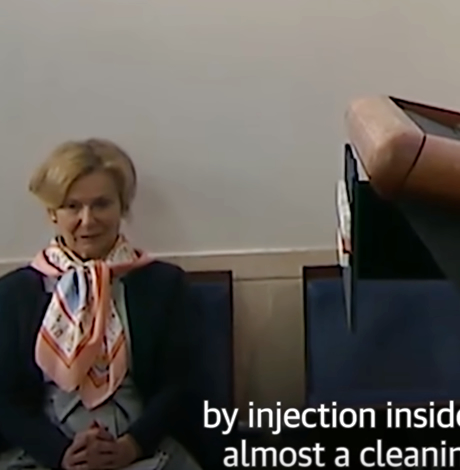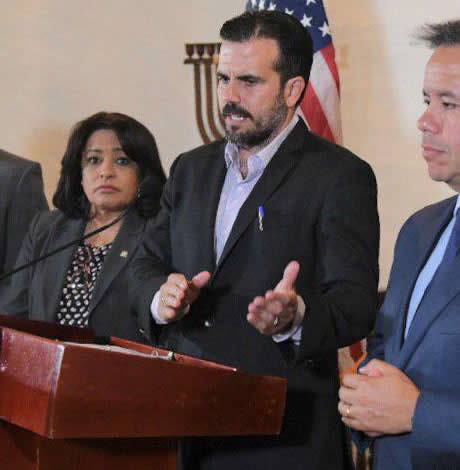National
Catholic adoption agency refusing to certify LGBT homes wins in court
Michigan non-profit sued after state required non-discrimination


A federal judge has in ruled in favor of a taxpayer-funded Catholic adoption agency in Michigan refusing to certify LGBT couples as qualified to take children into their homes.
U.S. District Judge Robert Jonker, a George W. Bush appointee, issued a preliminary injunction Thursday in favor of St. Vincent, a faith-based non-profit based in Lansing, Mich., concluding the state is targeting the agency for its religious beliefs.
“This case is not about whether same-sex couples can be great parents,” Jonker writes. “They can. No one in the case contests that. To the contrary, St. Vincent has placed children for adoption with same-sex couples certified by the State. What this case is about is whether St. Vincent may continue to do this work and still profess and promote the traditional Catholic belief that marriage as ordained by God is for one man and one woman.”
The case was filed in April after a settlement was reached in a separate case filed by the American Civil Liberties Union challenging Michigan’s religious freedom adoption law, which allowed faith-based to turn away LGBT families seeking to adopt. Under the settlement, Michigan adoption agencies going forward were prohibited from discriminating against LGBT couples.
Shortly afterward, the Michigan Department of Health & Human Services opened an investigation into St. Vincent under allegations wasn’t complying with the settlement’s non-discrimination terms. Anticipating it would be found out of compliance, St. Vincent preemptively filed the lawsuit seeking an injunction to continue to certify families for child placement consistent with its religious beliefs.
St. Vincent made the case Michigan is violating freedom of religion and speech under the First Amendment and the Equal Protection Clause of the Fourteenth Amendment by threatening to penalize the agency for refusing to certify LGBT families.
Jonker grants his preliminary injunction to St. Vincent on the basis that the agency has demonstrated harm imposed by the settlement and the likelihood of success in court.
“St. Vincent says it cannot in good conscience review and certify an unmarried or same-sex parental application,” Jonker writes. “St. Vincent would either have to recommend denial of all such applications, no matter how much value they could provide to foster and adoptive children; or St. Vincent would have to subordinate its religious beliefs to the state-mandated orthodoxy, even though the state is not compensating them for the review services anyway.”
Making the case St. Vincent isn’t anti-LGBT, Jonker writes St. Vincent’s “does not prevent any couples, same-sex or otherwise, from fostering or adopting.” The agency, Jonker writes, refers LGBT and unmarried couples seeking certify to adopt to other agencies willing to provide that endorsement.
LGBT couples, Jonker writes, can also adopt children at St. Vincent through the Michigan Adoption Resource Exchange (MARE) website, which allows all Michigan families access to all children adoption agencies (so long as they obtained certification at an agency other than St. Vincent).
“St. Vincent has never prevented a same-sex couple from fostering or adopting a child. St. Vincent has actually placed children through the MARE system with same-sex adoptive parents,” Jonker writes. “And St. Vincent provides parenting support groups at which same-sex parents are welcome and, in fact, attend. This is non-discriminatory conduct consistent with everything the State says it is trying to promote.”
Heavily cited by Jonker is the decision of Michigan Attorney General Dana Nessel, a lesbian, to no longer defend in litigation the state’s religious freedom adoption signed ged by former Michigan Gov. Rick Snyder.
As the law was being challenged in court during the 2018 election, Nessel campaigned on refusing to defend the law, asserting she “could not justify using the state’s money” to defend “a law whose only purpose is discriminatory animus.” Upon winning the election, Nessel helped reached the settlement for non-discrimination in Michigan adoption agencies.
Jonker writes the record demonstrates Nessel is targeting St. Vincent’s for its religious beliefs, therefore strict scrutiny applies, to the state’s enforcement of the settlement.
“Under the Attorney General’s current interpretation of Michigan law and the parties’ contracts, St. Vincent must choose between its traditional religious belief, and the privilege of continuing to place children with foster and adoptive parents of all types,” Jonker writes.
The Washington Blade has placed a request in with the Michigan attorney general’s office seeking comment on the decision.
Representing St. Vincent’s in the case was the Becket for Religious Liberty, which has defended groups like Hobby Lobby and Little Sisters of the Poor.
Lori Windham, a religious liberty attorney with Becket, hailed the decision on Twitter as a “major victory for faith-based foster care and adoption in Michigan.”
“Thanks to the ruling, St. Vincent will be able to continue serving foster children in Michigan and their selfless foster families,” Windham tweeted. “More than 13,000 foster kids in Michigan need help, and we need all hands on deck.”
Jay Kaplan, LGBT Project staff attorney of the American Civil Liberties Union of Michigan, criticized the decision as “the individual religious beliefs of foster care agencies ahead of the welfare of children.”
“This will not facilitate foster and adoptive placements for children in need,” Kaplan said. “Instead, it will allow agencies to turn away same-sex foster parents who are able to provide supportive and loving homes for these children.”
Although the ruling is focused on family certification at St. Vincent, Kaplan told the Blade the decision will have broader impact on LGBT people in Michigan.
“The reality is…St. Vincent will place kids in homes of families that they work with and if they have refused to work with same-sex couples, that means the kids that they are placing will not be placed in LGBT homes,” Kaplan said. “I think this ruling could be broadly interpreted because its impact on kids and their ability to get placed with LGBT parents who are able to provide them with stable, loving homes.”
Another defendant in the case is the Department of Health & Human Services, which has under the Obama administration instituted regulations prohibiting federal contractors discriminating on the basis of sexual orientation. (The Trump administration has kept the regulations — for now — but has granted at least one waiver to states seeking exemption for faith-based adoption agencies.)
Jonker’s decision also enjoins the U.S. government from enforcing its regulations to penalize St. Vincent. A Justice Department spokesperson said the administration is “reviewing the decision.”
Also in the decision, Jonker finds other named plaintiffs in the case — Chad and Melissa Buck, who have adopted four siblings through St. Vincent and work at the agency, and Shamber Flore — who was placed in the agency as a child before she was adopted — don’t have standing to continue in the case.
Federal Government
Lambda Legal praises Biden-Harris administration’s finalized Title IX regulations
New rules to take effect Aug. 1

The Biden-Harris administration’s revised Title IX policy “protects LGBTQ+ students from discrimination and other abuse,” Lambda Legal said in a statement praising the U.S. Department of Education’s issuance of the final rule on Friday.
Slated to take effect on Aug. 1, the new regulations constitute an expansion of the 1972 Title IX civil rights law, which prohibits sex-based discrimination in education programs that receive federal funding.
Pursuant to the U.S. Supreme Court’s ruling in the landmark 2020 Bostock v. Clayton County case, the department’s revised policy clarifies that discrimination on the basis of sexual orientation and gender identity constitutes sex-based discrimination as defined under the law.
“These regulations make it crystal clear that everyone can access schools that are safe, welcoming and that respect their rights,” Education Secretary Miguel Cardona said during a call with reporters on Thursday.
While the new rule does not provide guidance on whether schools must allow transgender students to play on sports teams corresponding with their gender identity to comply with Title IX, the question is addressed in a separate rule proposed by the agency in April.
The administration’s new policy also reverses some Trump-era Title IX rules governing how schools must respond to reports of sexual harassment and sexual assault, which were widely seen as imbalanced in favor of the accused.
Jennifer Klein, the director of the White House Gender Policy Council, said during Thursday’s call that the department sought to strike a balance with respect to these issues, “reaffirming our longstanding commitment to fundamental fairness.”
“We applaud the Biden administration’s action to rescind the legally unsound, cruel, and dangerous sexual harassment and assault rule of the previous administration,” Lambda Legal Nonbinary and Transgender Rights Project Director Sasha Buchert said in the group’s statement on Friday.
“Today’s rule instead appropriately underscores that Title IX’s civil rights protections clearly cover LGBTQ+ students, as well as survivors and pregnant and parenting students across race and gender identity,” she said. “Schools must be places where students can learn and thrive free of harassment, discrimination, and other abuse.”
Michigan
Mich. Democrats spar over LGBTQ-inclusive hate crimes law
Lawmakers disagree on just what kind of statute to pass

Michigan could soon become the latest state to pass an LGBTQ-inclusive hate crime law, but the state’s Democratic lawmakers disagree on just what kind of law they should pass.
Currently, Michigan’s Ethnic Intimidation Act only offers limited protections to victims of crime motivated by their “race, color, religion, gender, or national origin.” Bills proposed by Democratic lawmakers expand the list to include “actual or perceived race, color, religion, gender, sexual orientation, gender identity or expression, ethnicity, physical or mental disability, age, national origin, or association or affiliation with any such individuals.”
Democratic Gov. Gretchen Whitmer and Attorney General Dana Nessel have both advocated for a hate crime law, but house and senate Democrats have each passed different hate crimes packages, and Nessel has blasted both as being too weak.
Under the house proposal that passed last year (House Bill 4474), a first offense would be punishable with a $2,000 fine, up to two years in prison, or both. Penalties double for a second offense, and if a gun or other dangerous weapons is involved, the maximum penalty is six years in prison and a fine of $7,500.
But that proposal stalled when it reached the senate, after far-right news outlets and Fox News reported misinformation that the bill only protected LGBTQ people and would make misgendering a trans person a crime. State Rep. Noah Arbit, the bill’s sponsor, was also made the subject of a recall effort, which ultimately failed.
Arbit submitted a new version of the bill (House Bill 5288) that added sections clarifying that misgendering a person, “intentionally or unintentionally” is not a hate crime, although the latest version (House Bill 5400) of the bill omits this language.
That bill has since stalled in a house committee, in part because the Democrats lost their house majority last November, when two Democratic representatives resigned after being elected mayors. The Democrats regained their house majority last night by winning two special elections.
Meanwhile, the senate passed a different package of hate crime bills sponsored by state Sen. Sylvia Santana (Senate Bill 600) in March that includes much lighter sentences, as well as a clause ensuring that misgendering a person is not a hate crime.
Under the senate bill, if the first offense is only a threat, it would be a misdemeanor punishable by one year in prison and up to $1,000 fine. A subsequent offense or first violent hate crime, including stalking, would be a felony that attracts double the punishment.
Multiple calls and emails from the Washington Blade to both Arbit and Santana requesting comment on the bills for this story went unanswered.
The attorney general’s office sent a statement to the Blade supporting stronger hate crime legislation.
“As a career prosecutor, [Nessel] has seen firsthand how the state’s weak Ethnic Intimidation Act (not updated since the late 1980’s) does not allow for meaningful law enforcement and court intervention before threats become violent and deadly, nor does it consider significant bases for bias. It is our hope that the legislature will pass robust, much-needed updates to this statute,” the statement says.
But Nessel, who has herself been the victim of racially motivated threats, has also blasted all of the bills presented by Democrats as not going far enough.
“Two years is nothing … Why not just give them a parking ticket?” Nessel told Bridge Michigan.
Nessel blames a bizarre alliance far-right and far-left forces that have doomed tougher laws.
“You have this confluence of forces on the far right … this insistence that the First Amendment protects this language, or that the Second Amendment protects the ability to possess firearms under almost any and all circumstances,” Nessel said. “But then you also have the far left that argues basically no one should go to jail or prison for any offense ever.”
The legislature did manage to pass an “institutional desecration” law last year that penalizes hate-motivated vandalism to churches, schools, museums, and community centers, and is LGBTQ-inclusive.
According to data from the U.S. Department of Justice, reported hate crime incidents have been skyrocketing, with attacks motivated by sexual orientation surging by 70 percent from 2020 to 2022, the last year for which data is available.
Twenty-two states, D.C., Puerto Rico, and the U.S. Virgin Islands have passed LGBTQ-inclusive hate crime laws. Another 11 states have hate crime laws that include protections for “sexual orientation” but not “gender identity.”
Michigan Democrats have advanced several key LGBTQ rights priorities since they took unified control of the legislature in 2023. A long-stalled comprehensive anti-discrimination law was passed last year, as did a conversion therapy ban. Last month the legislature updated family law to make surrogacy easier for all couples, including same-sex couples.
A bill to ban the “gay panic” defense has passed the state house and was due for a Senate committee hearing on Wednesday.
Indiana
Drag queen announces run for mayor of Ind. city
Branden Blaettne seeking Fort Wayne’s top office

In a Facebook post Tuesday, a local drag personality announced he was running for the office of mayor once held by the late Fort Wayne Mayor Tom Henry, who died last month just a few months into his fifth term.
Henry was recently diagnosed with late-stage stomach cancer and experienced an emergency that landed him in hospice care. He died shortly after.
WPTA, a local television station, reported that Fort Wayne resident Branden Blaettne, whose drag name is Della Licious, confirmed he filed paperwork to be one of the candidates seeking to finish out the fifth term of the late mayor.
Blaettner, who is a community organizer, told WPTA he doesn’t want to “get Fort Wayne back on track,” but rather keep the momentum started by Henry going while giving a platform to the disenfranchised groups in the community. Blaettner said he doesn’t think his local fame as a drag queen will hold him back.
“It’s easy to have a platform when you wear platform heels,” Blaettner told WPTA. “The status quo has left a lot of people out in the cold — both figuratively and literally,” Blaettner added.

The Indiana Capital Chronicle reported that state Rep. Phil GiaQuinta, who has led the Indiana House Democratic caucus since 2018, has added his name to a growing list of Fort Wayne politicos who want to be the city’s next mayor. A caucus of precinct committee persons will choose the new mayor.
According to the Fort Wayne Journal Gazette, the deadline for residents to file candidacy was 10:30 a.m. on Wednesday. A town hall with the candidates is scheduled for 6 p.m. on Thursday at Franklin School Park. The caucus is set for 10:30 a.m. on April 20 at the Lincoln Financial Event Center at Parkview Field.
At least six candidates so far have announced they will run in the caucus. They include Branden Blaettne, GiaQuinta, City Councilwoman Michelle Chambers, City Councilwoman Sharon Tucker, former city- and county-council candidate Palermo Galindo, and 2023 Democratic primary mayoral candidate Jorge Fernandez.
-

 Africa4 days ago
Africa4 days agoCongolese lawmaker introduces anti-homosexuality bill
-

 District of Columbia1 day ago
District of Columbia1 day agoReenactment of first gay rights picket at White House draws interest of tourists
-

 World4 days ago
World4 days agoOut in the World: LGBTQ news from Europe and Asia
-

 Arizona1 day ago
Arizona1 day agoAriz. governor vetoes anti-transgender, Ten Commandments bill










